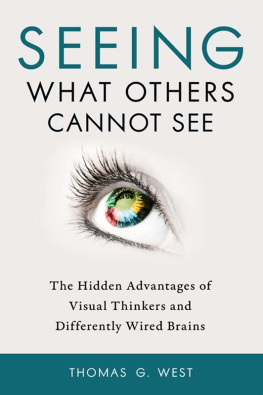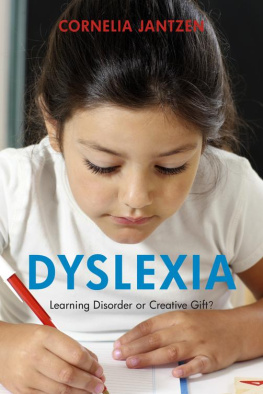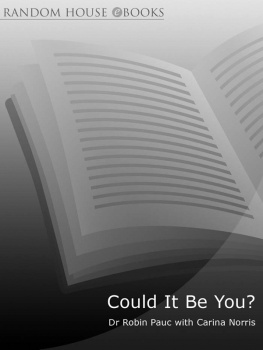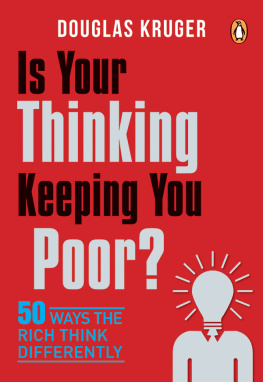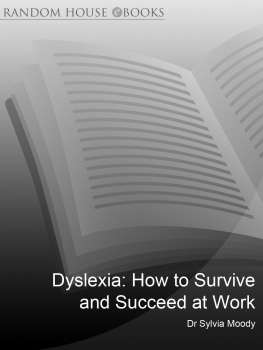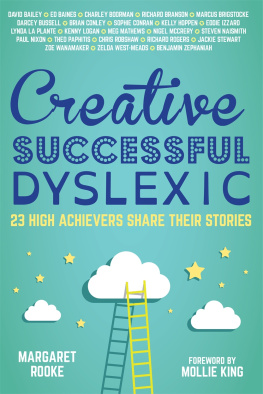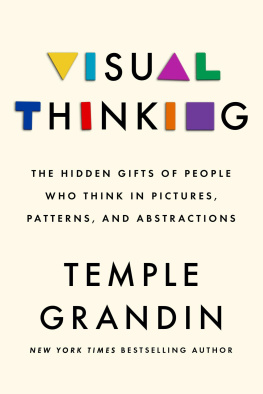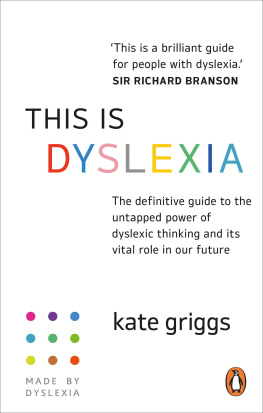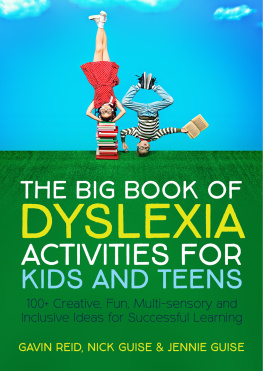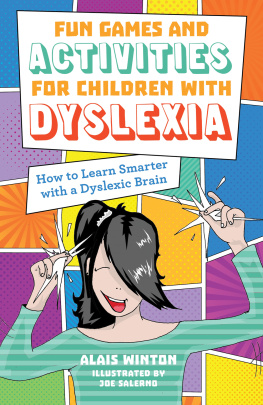I want to say that I am enormously grateful to those who have helped to carry forward the long-term effort to recognize, understand, and appreciate the distinctive talents of dyslexics and other different thinkers. I want to give special thanks to Fernette and Brock Eide, who have done so much to lead the effort in recent years with their books, conferences, websites, and the nonprofit organization they founded, Dyslexic Advantage (of which I am a proud board member). I also want give special thanks to Angela Fawcett for all of the work she has done to move the agenda forward in different parts of the world with her former editorship of Dyslexia and current editorship of the Asia Pacific Journal of Developmental Differences. I am full of admiration for the leadership of Lee Siang, Deborah Hewes, and the staff of the Dyslexia Association of Singapore in recognizing and developing the distinctive talents and capabilities of dyslexic children and adults.
My special thanks go to the late Oliver Sacks (and Kate Edgar) for the kind words and foreword provided for the second edition of In the Mind's Eye. My special thanks also go to Temple Grandin, who through her talks, books, and life story has done so much to open a window into the world of Asperger's syndrome, autism, and those on the spectrum. I am grateful for the friendship and wisdom of the late Harold Morowitz, founding director of the Krasnow Institute for Advanced Study, and author of many books, including coauthor, with Eric Smith, of The Origin and Nature of Life on Earth. And finally, I am most grateful to my wife, Margaret, and sons, Benjamin and Jonathan, for their support and for teaching me so much over the years.
Seeing What Others Cannot See is strongly linked to my previous two books and the people from whom I have learned so much for over twenty-five years. Many are thanked in my first two books, but most have provided influence that has extended to the present work. Those who have been especially helpful and supportive in the past and in more recent years, through conversations and meetings, and through their writings, publications, and films, are listed here: Will Baker, Donna Cox, Jim Blinn, Gordon Cameron, Janet Dreyer, John Everatt, Naomi Folb, Jack Horner, Harvey Hubble, Ken Hunter, Brandon King, Diana Hanbury King, Don and Mary Lindberg, Rod Nicolson, Adrian Noe, Sue Parkinson, Gavin Reid, John Elder Robison, Marc Rowe, Matthew Scurfield, Alvy Ray Smith, Delos Smith, Vijayasarathy Srinivasa, John Stein, Patience and David Thomson, and Jo and Richard Todd.
The quotations that introduce this book are from the following sources: Oliver Sacks, foreword to In the Mind's Eye: Creative Visual Thinkers, Gifted Dyslexics, and the Rise of Visual Technologies, 2nd ed., by Thomas G. West (Amherst, NY: Prometheus Books, 2009), p. 11; John Elder Robison, official website, 2017, johnrobison.com; GCHQ official, quoted in Dyslexia Is Britain's Secret Weapon in the Spy War, by Robert Verkaik, Daily Mail, July 13, 2013; Beryl Benacerraf, quoted in Beryl Benacerraf, M.D., Physician, by Alix Boyle, The Yale Center for Dyslexia & Creativity website, dyslexia.yale.edu/benacerraf.html; and Roger Parloff, Deep Learning Revolution, Fortune, October 2016, pp. 96106.

Below is a letter I requested from Delos Smith. I initially wrote about Delos in In the Mind's Eye. Then we met at a conference and we became close friends. Delos had to have special language training when young. But for many years he worked for the Conference Board in New York City and became a favored radio and TV commentator on business issues. Long ago, I had read in an article on Leonardo da Vinci that he wrote in what is called mirror writing to keep people from understanding what he was writing. I did not know much at the time, but I strongly suspected that the expert who made this assertion was entirely wrong. Much later, I discovered that there are a significant number of people who quite naturally prefer to write in mirror writing. Indeed, they prefer to do many things in a way that would appear backward to most of usincluding playing music and even speaking. Delos is one of these people. At my request, he provided some details about his life-changing experience associated with mirrored music. This is his story, so I decided to include it here without modification or commentary. I hope that his story will help to provide a better understanding of different kinds of brains and different kinds of minds.
Thomas G. West
December 17, 2013
Dear Tom:
This is the story of mirror day when I played the song Oh, My Darling Clementine backwards (retrograde) and had my first musical feeling in my life. I played the song at 9:30 pm on Thursday, December 9, 1976. At 9:31 pm on that day my life had been changed completely. I didn't know that I would be leading a completely different life at that moment.
All I knew then was that I needed to ask a lot of questions about my early childhood challenges. I had thought they had been taken care of with my work with Sam and June Orton and Katrina de Hirsch. After their work, the Ortons declared that I was a normal boy and now could compete with my classmates. The date was September 1944. I was 9 years old and entering the 4th grade. From kindergarten through the 3rd grade I had been carried by my schoolthe Horace Mann School that was operated by Teachers College of Columbia University. The school was actually located in the Teachers College building. From September 1944 to December 9, 1976, at 9:30 pm I and my parents considered me normal.
Normal was defined as having the ability to be able to comprehend the material in my school. This was true. I was able to comprehend the material but at the same time I was very inconsistent in my schoolwork. For the most part I did understand the work but at the same time I was puzzled by how my teachers were teaching me.
Then came December 9, 1976, at 9:30 pm when everything changed. At that moment I knew I had no understanding what my childhood problems wereand I had little understanding of what my work with the Ortons was all about.
I knew that starting in the 3rd grade I was pulled out of my classroom and directed to another classroom where I met with an Orton teacher who drilled me for an hour on the basic tools of the English language. These hourly classes started in the summer after I completed the 2nd grade. The special sessions would continue six days a week until I entered the 4th grade when I was then 9 years old.
When I was 34 or 35 years old, I decided to make a New Year's resolution. I had two traumas that I did not understand or comprehend. One was public speaking. Any public speaking terrified me because I would always speak some gibberish during my presentations. In schools my classmates found my mumbled language hilarious. As an adult it was just downright awful.
The other trauma was my total lack of musical abilitysimilar to other members of my family. I couldn't sing on key with others. In dance I was totally out of step. At college I was required to take ROTC for the first two years. My marching was a total disaster. I was never in step. In fact, I was almost thrown out of the college because I was out of step at an Armed Forces Day. I took dance lessons with Arthur Murray during college. After a few lessons the Arthur Murray people gave me my money back because they were unable to teach me. I also noticed that my parents had no musical ability at all and most members of my family had no musical ability at all either. The whole family was out of step. Why?

